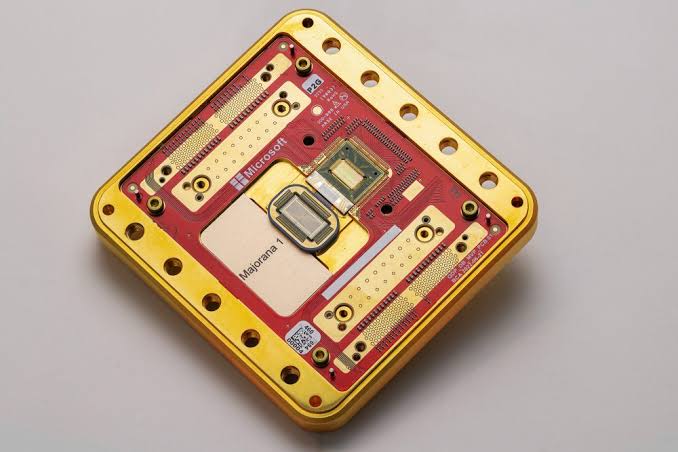When you purchase through links on our site, we may earn an affiliate commission. This doesn’t affect our editorial independence.
Microsoft announced on Wednesday that it has made a significant advancement in quantum computing. This new development might open the door for the technology expected to solve difficult scientific and societal problems. The “Majorana 1 chip” unveiled by Microsoft is powered by topological qubits, the basic building blocks of quantum computation. This development is a crucial phase in the decades-long competition among tech companies to influence the future of computing.
Microsoft is referring to the Majorana 1 as the first quantum processor in history. The company released this recent update in the journal Nature. According to Microsoft, the Majorana 1 chip, which is made out of a new mineral can do complex computational operations more quickly and precisely.
The Race For Quantum Computing
The announcement comes as several big tech companies compete for a dominant position in the forthcoming era of quantum computing. Scientists at the tech giant have been working on a new quantum computing framework and material for 17 years. Google released Willow, their newest quantum computing processor, in December 2024. Google said that their new processor can finish a challenging computational task in five minutes that would take over ten septillion years for some of the fastest supercomputers available today.
What to Expect in a Quantum Computer
In contrast to conventional computers, quantum computers can process enormous volumes of data simultaneously in ways that have the potential to transform industries like artificial intelligence, science, medicine, and energy. However, due to qubit instability, quantum computing is prone to mistakes. Microsoft said, its new topoconductor, which is composed of a newly synthesized material that combines the semiconductor indium arsenide and the superconductor aluminum, can execute operations more quickly and accurately than conventional qubits. The Majorana 1 can accommodate up to one million qubits on a single, small chip.
The instability of qubits in quantum systems causes researchers to invest so much money in error correction. So far, there are not enough dependable qubits for large-scale computation. Microsoft says that this issue is resolved by their Topological Core design. Microsoft further stated that it is on course to construct the first scalable, fault-tolerant quantum computer in the world in a matter of years as opposed to decades. The endeavor is part of a larger effort by the Defense Advanced Research Project Agency of the United States government to make quantum computing feasible for everyday use. This is a big moment for Microsoft since it now has a chip in the game. Right now, it’s still uncertain which company will lead the quantum computing revolution.








